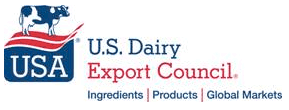
 The ongoing and so far, inconclusive negotiations of the Trans-Pacific Partnership (TPP), must result in the free trade of dairy products between the United States, Canada and Japan, according to organizations representing America's dairy farmers, processors and exporters. The U.S. Dairy Export Council (USDEC) and the National Milk Producers Federation (NMPF) also say progress on market access into those two markets has been frustratingly slow, and U.S. negotiators shouldn't allow the process to drag on indefinitely.
The ongoing and so far, inconclusive negotiations of the Trans-Pacific Partnership (TPP), must result in the free trade of dairy products between the United States, Canada and Japan, according to organizations representing America's dairy farmers, processors and exporters. The U.S. Dairy Export Council (USDEC) and the National Milk Producers Federation (NMPF) also say progress on market access into those two markets has been frustratingly slow, and U.S. negotiators shouldn't allow the process to drag on indefinitely. The statement by the U.S. dairy groups follows ministerial-level meetings in Singapore this week on several contentious, yet-to-be resolved issues, including resistance by Canada and Japan to allow further market access for "sensitive" sectors, including dairy imports. The TPP involves a significant number of markets bordering the Pacific Ocean, including the United States, Australia, Brunei, Canada, Chile, Japan, Malaysia, Mexico, New Zealand, Peru, Singapore and Vietnam.
The statement by the U.S. dairy groups follows ministerial-level meetings in Singapore this week on several contentious, yet-to-be resolved issues, including resistance by Canada and Japan to allow further market access for "sensitive" sectors, including dairy imports. The TPP involves a significant number of markets bordering the Pacific Ocean, including the United States, Australia, Brunei, Canada, Chile, Japan, Malaysia, Mexico, New Zealand, Peru, Singapore and Vietnam.NMPF President and CEO Jim Mulhern noted, "The U.S. dairy industry is prepared to eliminate all tariffs affecting dairy trade with Canada and Japan, as long as they do the same. If Japan and Canada are not willing to make an effort and offer realistic market access to the U.S., then they are not serious about being part of TPP."
"It is time to finish the Trans-Pacific Partnership negotiations, including resolving the treatment of agricultural trade," said Tom Suber, president of USDEC. "The principle of creating comprehensive market access is too important to this and future trade agreements. Therefore, if Japan and Canada are not committed to this goal, we need to move forward without them."
Suber noted that the U.S. dairy sector, in consultation with government officials, "has been patient and flexible with our Japanese and Canadian friends, but we are running out of both patience and time. We strongly believe there is an achievable deal to which both countries can agree, but that deal must include substantial market access for our products. It cannot be any other way."
In addition to addressing market access, both organizations noted that any comprehensive agreement also must include effective disciplines for applying sanitary and phytosanitary (SPS) measures that are science-based and enforceable, and preventing restrictions on the use of common food products.
Finally, the two U.S. dairy industry groups reiterated their concerns regarding New Zealand's monopolistic dairy structure that creates unfair commercial advantages for a single company, and reminded US negotiators that the TPP talks must address that concern.
2.27.2014